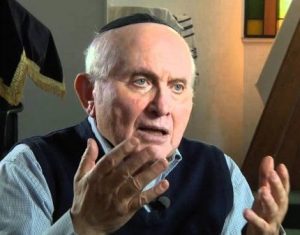The Holocaust and Masculinities
Gender Matters When Studying the Holocaust
Critical Inquiries into the Presence and Absence of Men
Earlier this year a new publication dealing with issues of gender and the Holocaust was published by SUNY Press titled The Holocaust and Masculinities. Edited by Björn Krondorfer, Director of the Martin-Springer Institute and Endowed Professor of Religious Studies at Northern Arizona University, and Ovidiu Creangă, Historian for the Claims Conference in New York and Adjunct Professor of Hebrew Bible at Wesley Theological Seminary in Washington, DC., the text fills an important gap in scholarship by dealing with the experiences of men as gendered beings.
Individual book chapters explore the behavior and decision making of men as perpetrators, victims, rescuers, enablers and a host of other categories. Each chapter provides the reader with nuanced and complex examples of how men negotiated their own identity as spouses, fathers, authority figures and other roles with their experiences in the Holocaust.
Editor Björn Krondorfer’s chapter, Hiding in Plain View: Critical Men’s Studies and Holocaust Studies into Conversation establishes the foundation for chapters that follow, contextualizing why and in what ways this topic has much to contribute to the field and why it is coming to the forefront now.

Among the 11 chapters in the book, a number of formidable topics are introduced. Historian Lisa Pine discusses the specificity of the behavior of male Holocaust victims at Auschwitz, Holocaust scholar Monika Rice delves into the issue of male narrativity and the moral dilemmas found in the memoirs and diaries of Jewish doctors, and historian Edward Westermann sheds light on the intersection of manhood with alcohol, sexual violence and killing. These are complex, powerful topics and each contributor not only adds to our overall knowledge of the Holocaust but also encourages us to examine the performativity of masculinity as an integral part of the discourse.
I should also mention that I was honoured to be one of the contributors and discussed the how post-Holocaust conceptualizations of masculinity in Austria continue to be influenced by the Holocaust. Although the Second World War ended in 1945, the effects of the Holocaust continue to reverberate across time and through constructs of gender.
Historian Zoë Waxman described the book as “It builds on the existing scholarship on women and the Holocaust in a way that enriches our understanding of the intersectionality of masculinity and feminist.” Building on scholarship, opening up new vistas of understanding, and making readers think of how various lenses of inquiry can benefit each other and the field, is the hallmark of robust, discerning scholarship. I hope that you will add this new book to your reading list and discover how it can enrich the study of the Holocaust.



